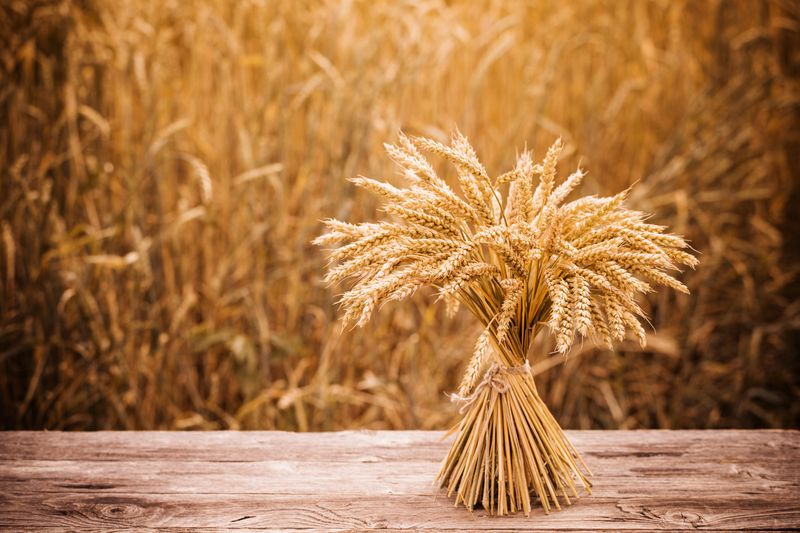Ukraine’s grain ‘OPEC’ – What is it and is it worth the price?

Ukraine is reviving Russia’s pipe dream of setting up an Organisation of Grain Exporting Countries with Western partners; however, experts warn of potential negative consequences with more clarification on its functioning needed.
Ukraine’s government has recently proposed the creation of such a body, an initiative that aims to bring together some of the world’s major grain exporters such as the United States, Canada, Brazil, Argentina, and the EU to coordinate efforts and overcome possible barriers to grain export.
The aim is “to protect personal economic interests” of its members, mainly as a reaction to the current disruption with grain exports from Ukraine, Markiyan Dmytrasevych, Ukraine’s deputy agriculture minister, explained to EURACTIV.
Such an initiative recalled a pipe dream of Russia, which in the first decade of 2000 tried to create a grain cartel with other Black Sea producers, including Ukraine and Kazakhstan.
The model Russia was inspired by in setting up the organisation was the powerful oil cartel Organisation of the Petroleum Exporting Countries (OPEC) which has a significant influence on the determination of fossil fuel prices on commodity markets.
But according to Dmytrasevych, the economic essence of Ukraine’s initiative is completely different from the OPEC’s. “Such an organisation could be a counterweight to the grain and food blackmail that Russia is currently engaged in”, he said.
According to him, food security may be the first element of the story, with the second one being economic matters.
For instance, if any country wants to import grain but imposes tariff and non-tariff barriers for processed products, the grain organisation could “respond accordingly to an unfriendly measure by the importer, with the exporter applying the mirror measure.”
Grain quotas against seaports blockade
One of the ideas of this organisation of grain exporters is to agree on quotas for grain exports.
“If this was the case before the war, some countries would not stockpile our grain to survive the situation we see with the war,” Dmytrasevych said, adding that big importers are not very worried because they believe that the war will end in some time, and their reserves will be enough.
According to the Ukrainian Deputy minister, relying too much on stocks may prevent the implementation of real actions to export grain from Ukraine.
About 400 million people have been fed by Ukrainian grain to some extent, with a significant proportion of these 400 million being from countries where people spend more than 40% of their annual income on food.
As a result of supplies from previous periods, these states have stocks. In a month or two, these stocks will run out – and with the current situation with Ukraine’s seaport blocked preventing exports, they will face a severe crisis.
One of the reasons why this initiative emerged, according to Dmytrasevych, was the Ukrainian seaports blockade in the light full-scale Russian invasion.
Previously, seaports accounted for 90% of Ukraine’s exports before the war, allowing it to export five and more million tonnes of grains monthly. Now even the most optimistic prognosis for exports through all the possible means is up to 2 million tonnes.
‘Grain OPEC’ against prices
With the crisis, some countries implemented measures to protect their internal markets, such as the Indian ban on exporting grains. According to its proponents, the ‘grain OPEC’ could help avoid such actions by specific countries.
However, experts in agrifood and trade mention possible negative consequences of such initiative, mentioning the increased prices, especially for those importing grains.
Joao Pacheco from the think tank FarmEurope explained that “if it means to establish export quotas, it would be in my view detrimental to our common interests, and would have a negative impact on food security in net food-importing countries, in Africa and the Middle-East in particular, as quotas would drive up grain prices.”
According to him, the idea of ‘grain OPEC’ fails to cover the outcomes of the Russian aggression resulting in the blockage of the Ukrainian sea export lanes, which are the main routes for the country to export its agricultural produce.
Moreover, boundaries between the competencies of such ‘grain OPEC’ and the World Trade Organisation (WTO) are not clear, as the alleged members of the organisation are also WTO members. The WTO standards presume free markets without regulations, while export quotas go against the rule.
Oleg Nivievskyi, professor and vice-president of economic education at the Kyiv School of Economics, is also sceptical about the initiative saying that export restrictions can make market prices go up and threaten food security, while farmers suffer due to the lower domestic prices.
He said that such restrictions may even impose more risks for food security “because in the current situation when there are uncoordinated actions of traders of countries, the exports from one country can compensate the deficit from another country and this is how the trade smooths out supply shocks or demand shocks.”
“But when there is a coordinated action for many countries, the risk is increasing,” he added.
At the same time, FarmEurope’s Pacheco leaves some space for positive outcomes of the initiative.
“If it means more cooperation on how to secure production and exports in such a difficult situation, this organisation could be a helpful platform to alleviate the current grain supply challenges,” he concluded.
Read also
Wheat in Southern Brazil Impacted by Dry Weather and Frosts
Oilseed Industry. Leaders and Strategies in the Times of a Great Change
Black Sea & Danube Region: Oilseed and Vegoil Markets Within Ongoing Transfor...
Serbia. The drought will cause extremely high losses for farmers this year
2023/24 Safrinha Corn in Brazil 91% Harvested
Write to us
Our manager will contact you soon



